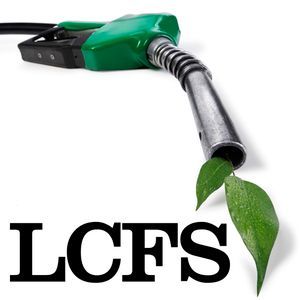CARB releases additional details on paused LCFS amendments

March 4, 2025
BY Erin Voegele
The California Air Resources Board on Feb. 26 released an updated market notice that outlines its plans for addressing regulatory clarity issues identified by the state’s Office of Administrative Law that have delayed implementation of Low Carbon Fuel Standard amendments approved by CARB last year.
CARB on Nov. 8 approved updates to its LCFS that aim to reduce the carbon intensity of the state’s transportation fuel by 30% by 2030 and by 90% by 2045. The updates also include a variety of technical changes to the LCFS program, including those requiring fuel producers to track crop-based and forestry-based feedstocks to their point of origin; requiring independent feedstock certification to ensure biomass-based diesel and sustainable aviation fuel (SAF) feedstocks are not undermining natural carbon stocks; prohibiting palm-derived fuels from receiving credits; placing a cap on the use of soybean oil, canola oil and sunflower oil in the production of LCFS-compliant biodiesel diesel fuels; and updates that phase out avoided methane crediting associated with the use of biomethane as a combustion fuel but extend the use of biomethane for renewable hydrogen.
Under California law, OAL must review rulemakings proposed by state agencies to ensure compliance with the Administrative Procedure Act, a state law that governs the rulemaking process. One component of that law deals with clarity, requiring regulations to be easily understood the people directly affected by them.
CARB submitted its final regulatory package on the approved LCFS amendments to OAL on Jan. 3. OAL on Feb. 18 notified CARB of its intention to disapprove the LCFS amendments citing “clarity” issues. CARB on Feb. 25 received a Decision of Disapproval of Regulatory Action from OAL, which details the reasons for the disapproval.
Advertisement
That document indicates that OAL has identified 26 proposed regulatory provisions where additional modifications may be necessary to ensure the regulatory provisions can be “easily understood by those persons directly affected by them.”
A statement issued by CARB on Feb. 26 stresses that “the routine disapproval was made on technical grounds, not the merits of the regulation.” CARB also confirmed that current LCFS regulations remain in effect as the agency works to address the feedback from OAL.
Under state law, CARB has 120 days to rewrite and resubmit the amendments. The agency said any substantive modifications will be subject to a public comment period.
Clean Fuels Alliance America on Feb. 28 released a statement noting that provisions of the LCFS amendments related to indirect land change (ILUC) values, new pathway applications, sustainability certification systems and specified feedstock attestations are among those flagged for clarity issues by OAL.
Advertisement
Jeff Earl, Clean Fuels Director of State Governmental Affairs, said there will be an opportunity to voice the industry’s concerns during a 15-day public comment period if one is triggered.
“Clean Fuels Alliance America will collaborate closely with its members to draft comments that ensure the latest science guides clear, effective regulations supporting the success of crop-based biodiesel and renewable diesel without unnecessary barriers,” he said.
Additional information is available on the CARB website.
Related Stories
The U.S. EPA on July 8 hosted virtual public hearing to gather input on the agency’s recently released proposed rule to set 2026 and 2027 RFS RVOs. Members of the biofuel industry were among those to offer testimony during the event.
The USDA’s Risk Management Agency is implementing multiple changes to the Camelina pilot insurance program for the 2026 and succeeding crop years. The changes will expand coverage options and provide greater flexibility for producers.
EcoCeres Inc. has signed a multi-year agreement to supply British Airways with sustainable aviation fuel (SAF). The fuel will be produced from 100% waste-based biomass feedstock, such as used cooking oil (UCO).
President Trump on July 4 signed the “One Big Beautiful Bill Act.” The legislation extends and updates the 45Z credit and revives a tax credit benefiting small biodiesel producers but repeals several other bioenergy-related tax incentives.
CARB on June 27 announced amendments to the state’s LCFS regulations will take effect beginning on July 1. The amended regulations were approved by the agency in November 2024, but implementation was delayed due to regulatory clarity issues.
Upcoming Events










